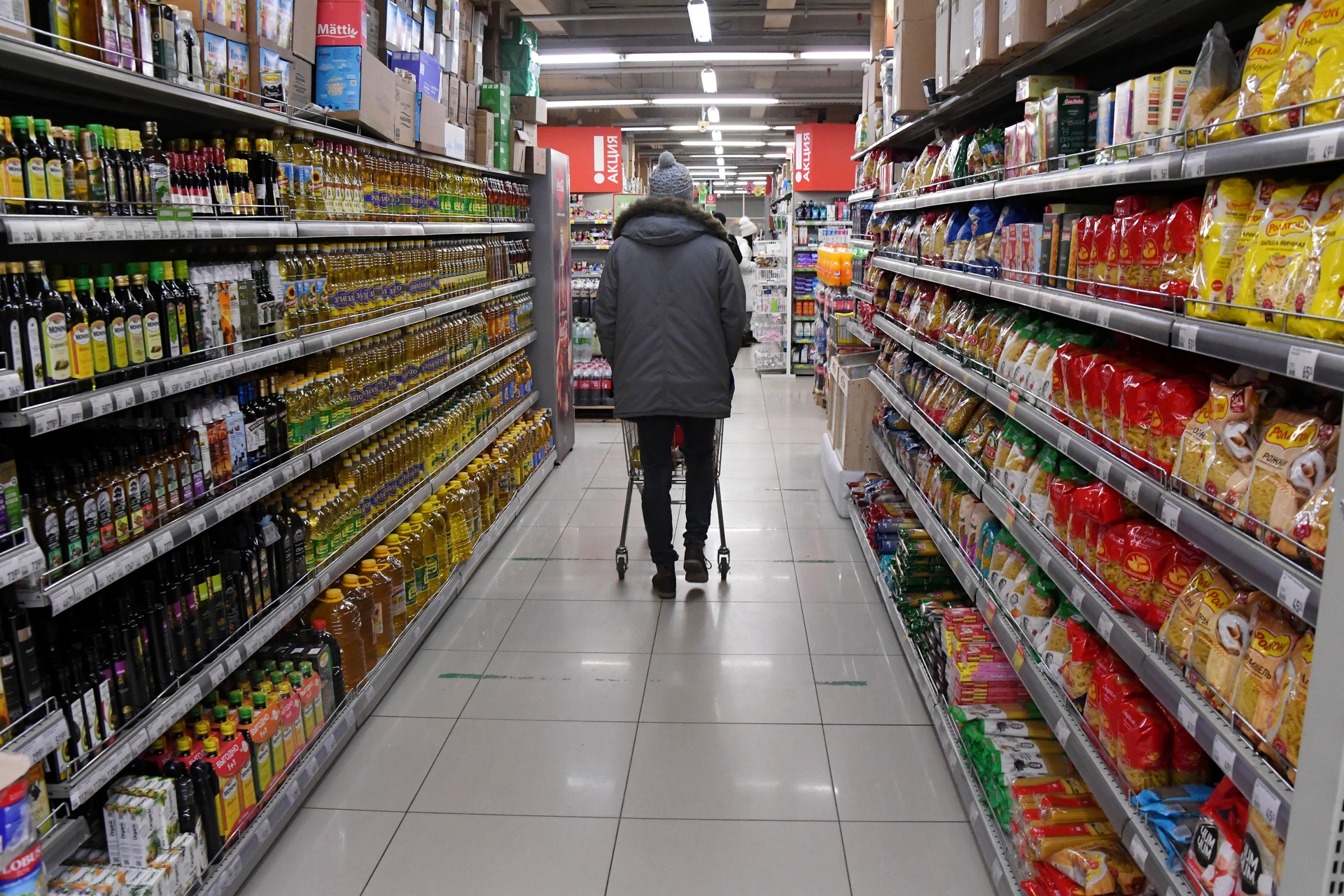In September 2021, global food prices rose 1.2% compared to August and reached their highest level in the last ten years.
Such data on Thursday, October 7, was presented by the Food and Agriculture Organization of the United Nations (FAO).
According to experts, over the past 12 months, the FAO Consumer Price Index (CPI) has grown by 32.8% and reached 130 points.
The value was the highest since September 2011.
“The growth in the value of the CPI in September is mainly due to the increase in prices for most cereals and vegetable oils.
Prices for dairy products and sugar also increased, while the price index for meat remained at the same level, ”the organization said in its report.
The main reason for the rise in food prices in the world was the imbalance of supply and demand in the global food market.
This point of view in an interview with RT was expressed by Nikita Maslennikov, head of the "Finance and Economics" direction of the Institute of Contemporary Development.
According to him, the consequences of the coronavirus pandemic and the quarantine restrictions that persist in a number of countries have negatively affected production volumes.
This, in turn, resulted in a shortage of products on the international market.
At the same time, consumer demand in the world has continued to grow steadily since the end of 2020, Maslennikov noted.
“Additionally, the prices were significantly affected by the rupture of transport and logistics delivery chains.
Now all over the world there is a real crisis in this regard due to the lack of containers.
This state of affairs has led to a sharp jump in freight and transportation costs, ”added the specialist.
In addition, the situation is complicated by the observed growth in world prices for oil, gas and coal, said Georgy Ostapkovich, director of the Center for Market Research at the Institute for Statistical Studies and Economics of Knowledge at the Higher School of Economics.
According to him, the rise in the cost of fuel also leads to an increase in the cost of production and transportation of goods.
“Energy prices are growing at a galloping pace.
Gas and coal are becoming more expensive, which affects the cost of electricity.
It, in turn, is included in the cost of the final product, as well as the cost of logistics.
Therefore, the rise in prices for fuel resources, naturally, is indirectly reflected in the rise in prices for any goods and services, ”explained Ostapkovich.
According to him, the general rise in world food prices to a certain extent affected Russia.
So, in September 2021, food prices in the country increased by 9.21% compared to the same month in 2020.
The achieved value turned out to be the maximum in more than five years.
This is evidenced by data from the Ministry of Economic Development and Rosstat.
“In September, there was an atypical rise in prices for fruits and vegetables for this month.
The growth in prices for foodstuffs has accelerated, with the exception of vegetables and fruits (meat products, milk and dairy products, eggs, cereals and legumes, pasta), ”the report of the Ministry of Economic Development says.
RIA News
© Vitaly Ankov
According to Georgy Ostapkovich, the rise in food prices in Russia by about 40% is due to the worldwide rise in food prices.
In addition, the cost of transport services within the country plays an important role.
“In countries such as Russia, China or Brazil, the rise in prices for transport services can be felt much more strongly.
In our country, for example, in order to transport fruits and vegetables from the Stavropol Territory to Kamchatka, it takes a week and a half to drive wagons, moreover, refrigerators.
This, of course, increases the price additionally, ”explained Ostapkovich.
The September rise in prices for fruit and vegetable products in Russia was also due to the fact that the harvest this year has shifted by almost a month, says Nikita Maslennikov.
In his opinion, in this regard, inflation in the country will begin to slow down somewhat later than initially expected.
“In the future, inflation will decrease, but we just have to wait until the farmers have already collected everything.
This will be towards the end of the year.
State measures may also exert additional pressure on inflation, ”Maslennikov stressed.
According to the latest estimates of the Ministry of Economic Development, the annual growth rate of consumer prices for goods and services in Russia accelerated to 7.48%.
However, according to the ministry, by the end of 2021, the value may drop to 5.8%.
This was previously stated by the head of the department, Maxim Reshetnikov.
“To stabilize prices, the monetary policy of the Bank of Russia is in effect (it affects inflation at the macro level) and government measures are of a non-monetary nature.
At the same time, we focus on systemic market measures - permanent damper mechanisms for grain and sunflower oil.
Measures to expand the supply of products, as well as measures related to export duties and import duties, "Reshetnikov said.

